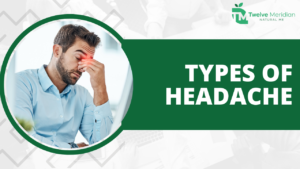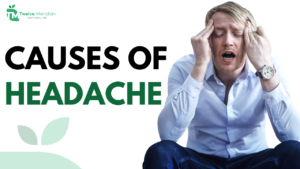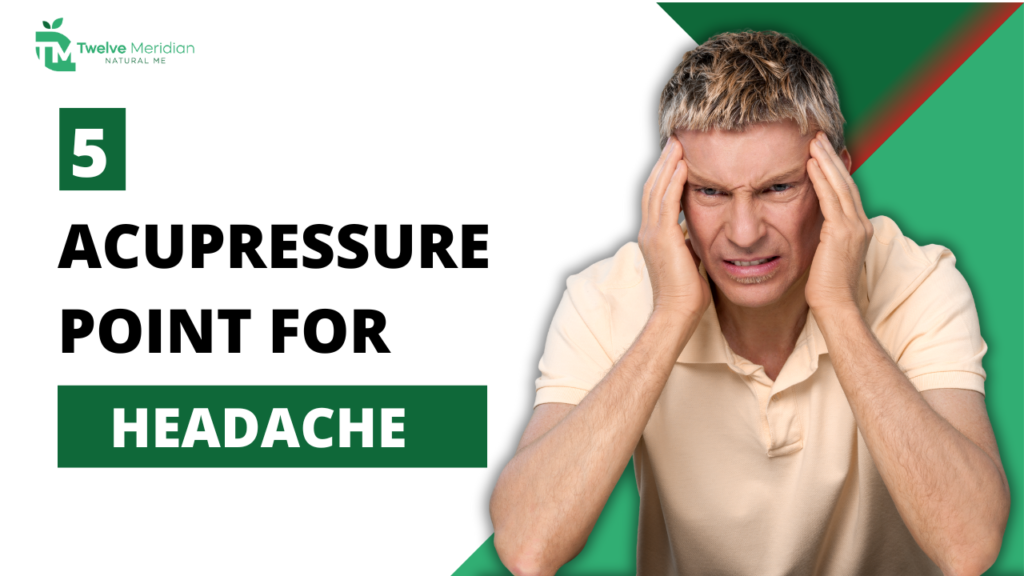Headache, a frequent problem that can greatly disrupt everyday activities, varies in intensity from slight discomfort to severe agony.
But, did you know there’s an effective, natural remedy for headaches? Enter acupressure. This therapy, grounded in traditional Chinese medicine, involves applying pressure to specific points on the body to ease tension and foster relaxation.
In this article, we’ll probe into the various kinds of headaches, explore their root causes, and demonstrate how a natural technique like acupressure can help alleviate the associated discomfort. It’s simpler than you might think!
Defining Acupressure
Acupressure can be defined as one of the modalities of traditional Chinese medicine which holds similarities with acupuncture. This involves applying pressure to a specific point on the meridian found in the human body. These points are also known as acupoints. This technique is employed to alleviate pain, tension, and discomfort.
Headaches can be categorized into four main types:


Tension headaches
Tension headaches rank among the most frequently encountered types of headaches that individuals suffer from. They are often caused by stress and tension in the neck and shoulder muscles.
Migraine headaches
Migraine headaches represent a more intense category of headache, often distinguished by a throbbing sensation localized to one side of the head. Various triggers such as stress, dietary factors, and hormonal fluctuations can precipitate migraines.
Cluster headaches
Cluster headaches, while less prevalent, can inflict extreme pain. They are marked by severe pain typically concentrated on one side of the head, accompanied by eye redness.
Sinus headaches
Sinus headaches arise from inflammation of the sinuses and are frequently linked with symptoms such as congestion, pressure, and discomfort in the forehead, cheeks, and eyes.
Causes of headaches
The causes of headaches can vary depending on the individual. However, some common causes include:


Stress
Stress stands as one of the most prevalent triggers of tension headaches. When one is under stress, they may unconsciously clench their jaw or tense up their shoulders, resulting in tension headaches.
Dehydration
Dehydration is another common cause of headaches. When dehydration occurs, it can lead to brain shrinkage, subsequently resulting in a headache.
Food triggers
Specific foods, including chocolate, cheese, and wine, have been identified as potential migraine triggers in certain individuals.
Hormonal changes
Changes in hormone levels, like those that occur during a menstrual cycle, can also provoke migraines in some women.
Lack of sleep
A lack of adequate sleep can induce fatigue, which can subsequently lead to the onset of headaches.
Environmental factors
Environmental factors such as loud noises, bright lights, and strong smells can also trigger headaches.
How acupressure can effectively relieve headaches
Acupressure can relieve headaches by:
Releasing tension
Acupressure can aid in relieving muscle tension, thereby mitigating the discomfort of tension headaches.
Improving blood circulation
Acupressure can boost blood circulation to the head, which may help in alleviating migraines.
Alleviating pain and discomfort
Acupressure can stimulate the body’s natural pain relief mechanisms, which can alleviate headaches.
Reducing stress and anxiety
Acupressure can help reduce stress and anxiety, which can ease tension headaches.
Key Acupressure Points for Headache Relief
1. Third Eye Point (GV24.5):


Stimulating this point, located between the eyebrows, can help relieve headache pain and promote relaxation.
2. Drilling Bamboo Points (B2):


This point is specifically located in the depression at the inner end of the eyebrow, directly above the inner corner of the eye. Applying pressure to these points can provide relief from headaches and reduce tension.
3. Gates of Consciousness Points (GB20):


Located at the base of the skull, these points help release tension and promote headache relief.
4. Wind Mansion Points (GV16):


Located at the back of the head, these points can help calm the mind and relieve headache discomfort.
5. Union Valley Points (LI4):


These points, situated between the thumb and index finger, are effective in relieving headache pain.
Techniques for Applying Acupressure
Finger pressure technique:
Using the fingers, apply firm pressure to the acupressure points to relieve headache pain.
Circular motion technique:
Gently massage the acupressure points in a circular motion to promote relaxation and alleviate headache discomfort.
Gentle massage technique:
Apply gentle, kneading motions to the headache-prone areas to release tension and reduce pain.
Duration and frequency of acupressure sessions:
To achieve optimal results, perform acupressure for a duration of 1-2 minutes per point, 2-3 times a day.
Other natural remedies for headache relief
In addition to acupressure, there are other natural remedies that can help relieve headaches. These include:
Aromatherapy
Inhaling fragrant essential oils can have a calming effect on the mind and body, which can help alleviate headaches.
Herbal remedies
Certain herbs such as feverfew and butterbur have been known to improve migraine symptoms.
Light exercise
Light exercises such as yoga or walking can help reduce stress and tension in the muscles, which can alleviate headaches.
Hydration
Drinking enough water can help prevent dehydration, which often leads to headaches.
Proper sleep habits
Getting enough sleep can prevent fatigue, which can alleviate headaches.
Acupressure Safety and Precautions
Although acupressure is generally safe, there are situations when you should avoid using it. Do not use acupressure on broken skin, infected areas, or areas of inflammation.
Risks and side effects
Acupressure is generally regarded as safe however, it is possible for some individuals to experience temporary discomfort or soreness following a treatment session.
Frequently asked questions
How long does it take for acupressure to relieve headaches?
The duration of relief varies from person to person. However, acupressure can often provide immediate relief.
Can acupressure be used along with medication?
Yes, acupressure can be used with medication.
How often should acupressure be performed for headaches?
Practice acupressure for several minutes each day, or as needed.
Is acupressure safe during pregnancy?
In case of pregnancy, first consult with your doctor before starting acupressure into your routine.
Conclusion
Acupressure stands as a potent and natural means of relieving headaches. By identifying the appropriate acupressure points and employing the correct techniques, you can effectively alleviate your headaches in a natural manner.



